Faith in the system: Beating the odds to top marks at school in Malawi
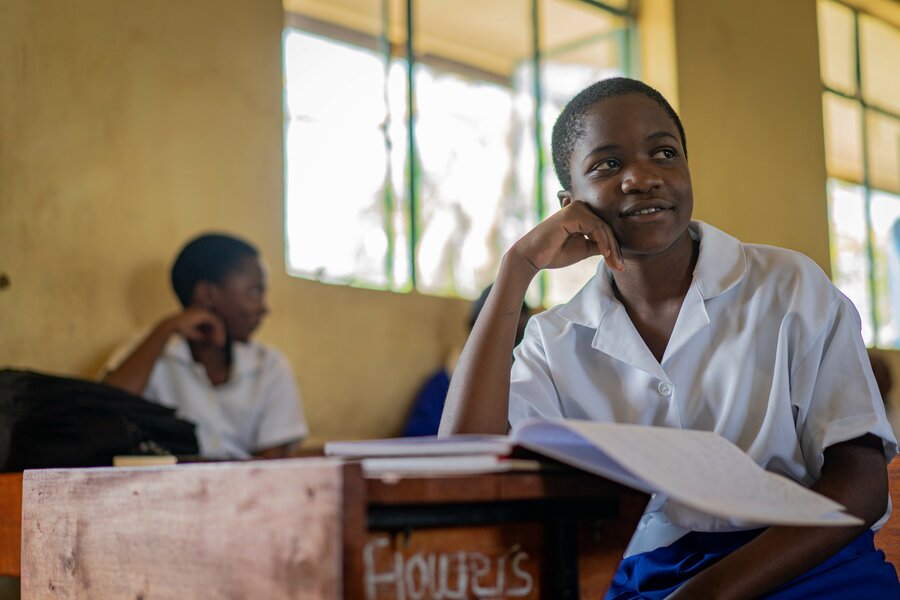
Poverty, hunger, inadequate school facilities, sexual and gender-based violence — schoolchildren in Malawi face multiple challenges that prevent them from accessing quality education.
WFP has been the largest provider of school feeding in Malawi since 1999. In 2019, WFP supported 786 primary schools, including Nkanda School, and reached 1.1 million preschool and primary-school learners with meals. The meals enabled learners to stay in school, concentrate better, and learn more.
So in spite of the odds, children such as Faith Mhanda are able to persevere. The 13-year-old is from a rural village at the foot of Mount Mulanje in the south of the country. Despite all the obstacles in her way, Faith finished top in her primary school examinations for 2019.
‘They told me I could compete against the privileged'
With 450 marks out of 500 in the national tests, Faith scored better than nearly 219,000 other pupils, including those who attended well-resourced urban schools with better learning environments than at her school, Nkanda. Among pupils selected to attend various institutions, she came first out of 82,072, winning a place at Providence Secondary, one of the best girls' schools in Malawi.
What helped Faith reach this pinnacle in her pursuit of education? Four factors:
1. Supportive parents
Faith is the youngest of two children in a family of teachers. Her father is the headteacher at Chambe Secondary School while her mother heads Milonga Community Day Secondary School in the same district.
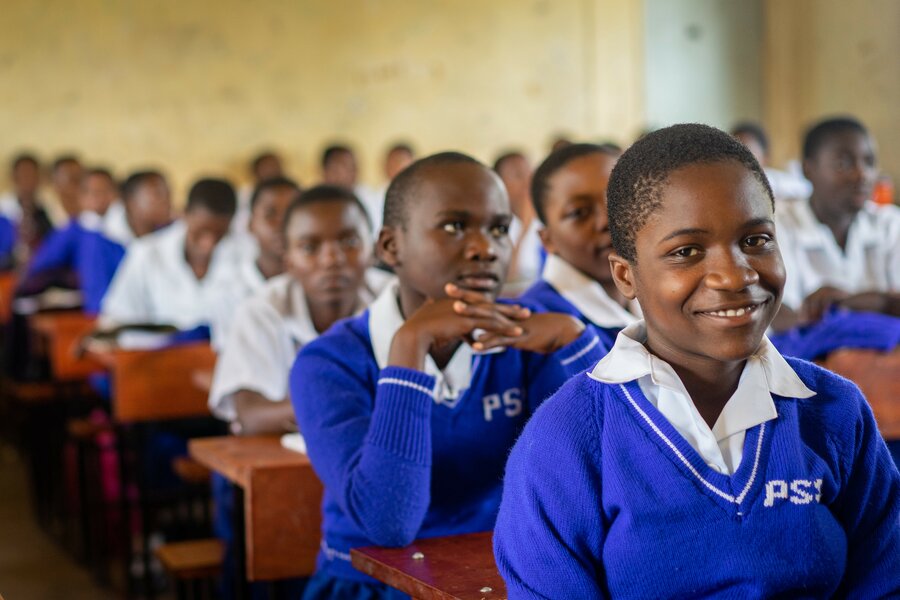
"My parents supported and encouraged me. They taught me that it is possible to be selected for a good and reputable secondary school," says Faith. "They told me that better secondary schools are not just for learners from rich families and urban schools. They told me I could compete against the privileged."
Nkanda school has 14 classrooms but needs 21, a situation that means children across three grades must take lessons under the shelter of trees and in old classrooms without desks.
2. Dedicated teachers
"My teachers took the extra time and effort to teach us beyond their normal and compensated hours so that we could pass our exams with flying colours," says Faith.
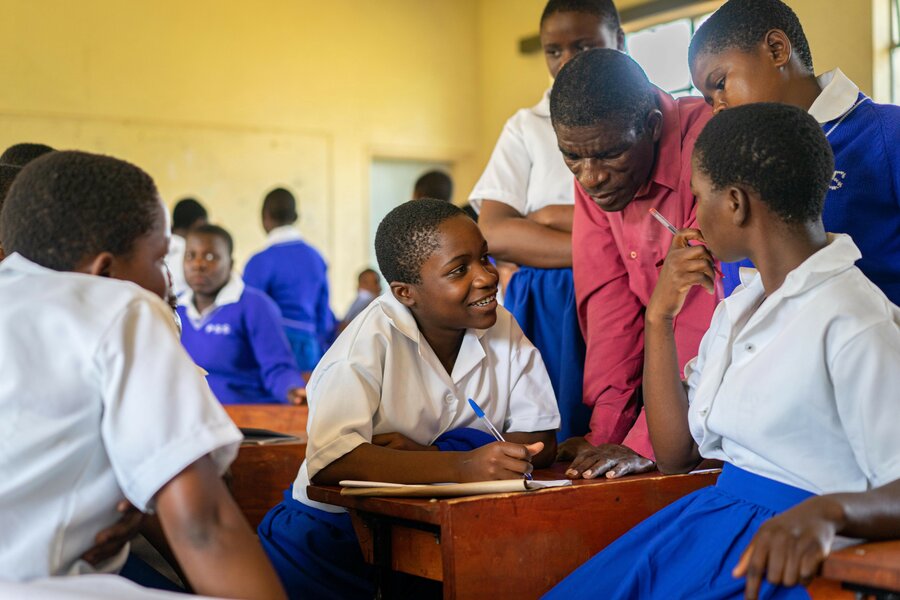
Nkanda School has 3,500 learners who are taught by 47 teachers, and the learner-teacher ratio is nearly 25 percent higher than the recommended 60:1. Despite being overstretched, teachers went the extra mile to prepare Faith and her classmates for the exams outside their working hours.
3. Food and nutrition
"Some days I would come to school hungry, but the daily school meals helped me to start my classes full and energetic," says Faith. "A healthy diet keeps one going all the way to achieve their dreams."
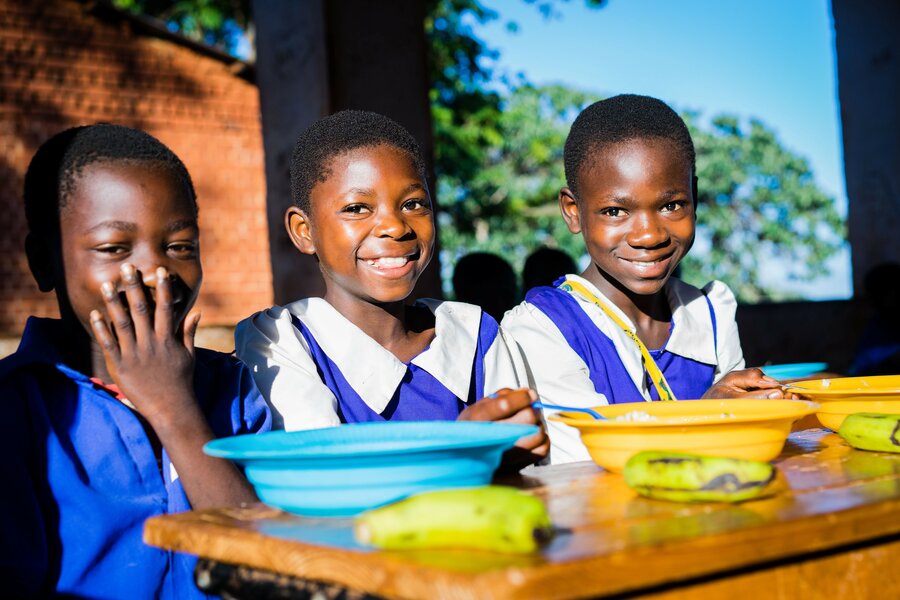
WFP has been the largest provider of school feeding in Malawi since 1999. In 2019, WFP supported 786 primary schools, including Nkanda School, and reached 1.1 million preschool and primary-school learners with meals. The meals enabled learners to stay in school, concentrate better, and learn more.
4. Hard work and dedication
"Above all, I worked very hard to do well in my exams and to never disappoint those who assisted me," she said.
"I had some challenges on the way, like poor learning facilities and not enough teaching, but these did not put me off. I kept going strong," said Faith. Faith aspires to become a doctor when her hard work pays off, but that's not all.
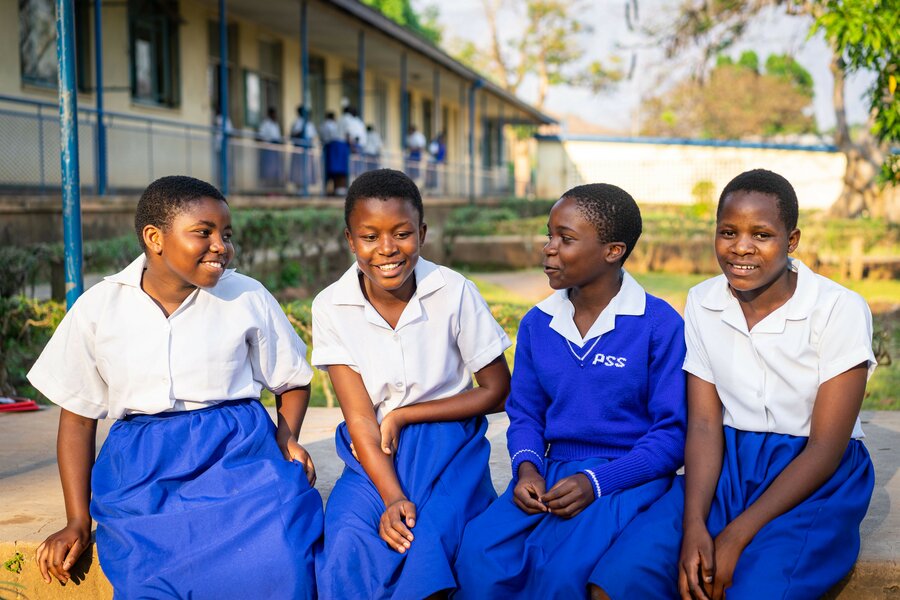
"I will pursue further studies so that I work at a medical school to train others." Faith spoke with determination.
"I know I have to work very hard to achieve my goal. This is a reputable school, but I don't take that for granted. I must do well in all subjects, particularly sciences, to get where I want to be," she concludes.
Providence Secondary School has produced renowned individuals, including Malawi's first female president Joyce Banda, a doctor Susan Kambale, and lawyer-cum-human rights activist Seodi White.
WFP's school feeding programme supports the Government of Malawi's the National Education Sector Plan and the National Social Support Programme, where school feeding is one of the five priority social nets. Studies estimate that for every US$1 spent on school feeding, at least US$6 are returned in better health and productivity when learners reach adulthood.
